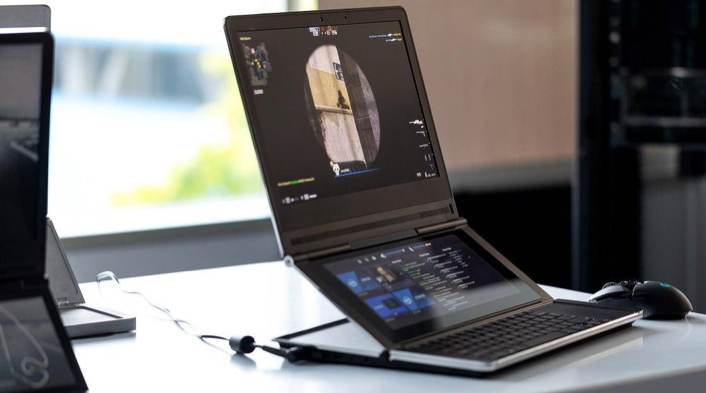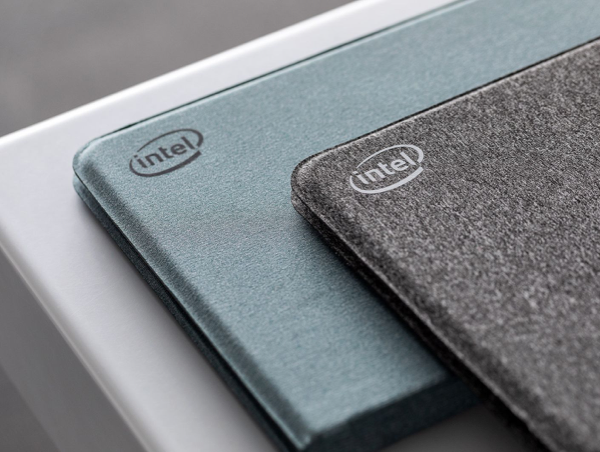The world’s biggest computer show introduces new ideas in multi-screen innovation
What’s considered old in tech years is new again this week at the popular Computex 2019 in Taipei, Taiwan, where chipmakers and laptop manufacturers unveiled new products with form factors that recalled the Microsoft Courier prototype in 2010 and Apple’s Knowledge Navigator in 1987.
Computex events mostly focus on advances in computing power. CEOs hold up tiny new microprocessor chips as if they’ve found a missing Infinity Stone, while crowds coo at 2x advances in the latest graphical card. Amid the obsession with overclocking processors for better gaming performance, several new product announcements stood out for their transformative potential, or at least for their quirky adherence to the latest trends in foldable, fabric-based modular hardware design.
Intel’s Honeycomb Glacier dual-screened laptop concept features two hinges that allow its screens to flex up and down. The concept attempts to bring together two screens— a 15.6-inch 1080p primary panel and a 12.3-inch 1920 x 720 secondary screen —for gamers who want to chat in one while playing in the other. Beyond gaming, the Honeycomb Glacier could replace multi-monitor set ups found in offices. Built-in Tobii eye-tracking software helps you switch apps with just a glance between screens.

Fashion- and Fabric-Infused Designs
The Honeycomb Glacier prototype wasn’t the only inspired design from Intel. The Twin River dual-screened tablet features a chassis made largely out of fabric, with a pair of 12.3-inch, 1920 x 1280 touchscreen displays tucked snuggly into a combination of polyester, polyamide, and Lycra textile. Harkening back to earlier Microsoft Surface tablet keyboards made of Alcantara fabric, this stylish twist adds a more traditional tactile experience to digital consumption.

Stylish innovation is not associated with Intel, but the Twin River tablet could change that.

The Touch Bar, Re-imagined
Taiwanese electronics company, ASUS, released the ZenBook Pro Duo, a laptop that features a 14-inch 4K touchscreen as a secondary display positioned above the keyboard. Where Apple’s touch bar has often felt more like a contrivance, the Zenbook Pro Duo appears to bring real utility to multi-tasking. Reviewers of the new laptop claim it improves workflow by allowing you to access quick controls, organize applications, position windows, and free up space on the main 15.6-inch OLED screen.

